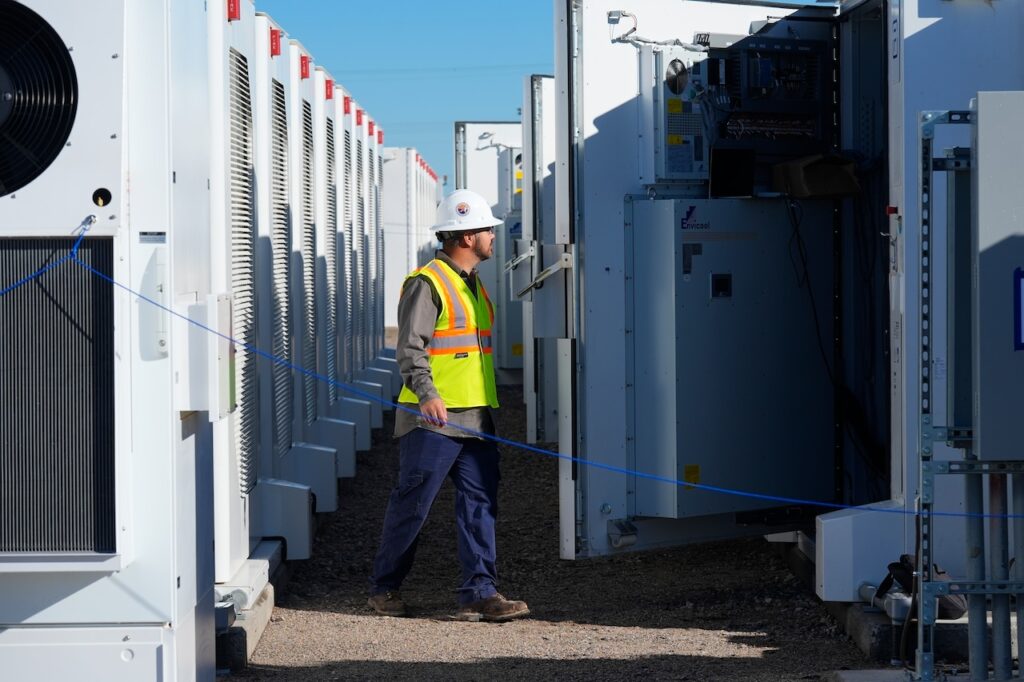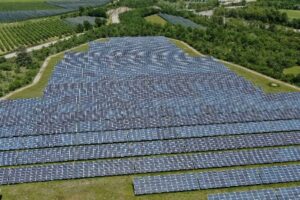Your electric bill is skyrocketing. Why isn’t N.J. ready for clean energy? | Opinion

By Kartik Amarnath
Already paying 32% more than the U.S. average in household bills, New Jersey is in need of more affordable electricity. Some households saw electricity bills increase an astounding 300% last summer, with bills going up again this June by about $25 a month due to a power supply shortage.
Despite legislative directives with ambitious clean energy targets that would make electric bills more affordable for everyone, for years, the state’s progress has seemed stuck in neutral. Without pushing the accelerator, the Trump administration can further undermine our chances at an affordable, clean, and safe energy system. What gives?
Here’s how it works
When New Jersey passes a law about energy, its implementation is passed on to a regulatory authority known as the Board of Public Utilities (BPU). Historically, the BPU oversaw the business-as-usual activities of polluting utility monopolies. Now, thanks to legislative pressure, the BPU is tasked with modernizing our antiquated energy grid so that it better serves our needs.
This institutional shift is no small undertaking and the BPU needs help. For example, in 2018 New Jersey passed a law requiring the BPU to develop a program that incentivizes 600 megawatts of energy storage by 2021 and 2 gigawatts by 2030. Energy storage empowers households to self-generate and store energy, and this was one of the first and most aspirational energy storage targets in the country. But setting targets is the easiest part of the puzzle.
The BPU only released their straw proposal — in other words, a rough draft — for how to do this in November 2024, as if the 2021 target didn’t exist. With less than five years to build 2 gigawatts, we still don’t have an official storage program in place.
It’s up to the governor and Legislature to make sure the BPU has the tools it needs. The BPU needs more technical expertise and more staff. Most critically, it must be more transparent in its public processes and ensure energy grid planning is led by communities hit first and worst by climate change.
New Jersey needs more energy storage, especially with offshore wind on the ropes, but it also needs to be responsibly deployed through incentives and regulations that are still not fully in place. If done without thoughtful planning, storage can increase energy costs and overall emissions. Delays with energy storage encapsulate some of the vitally needed reforms at the BPU. New Jersey has still not met its 2021 storage target, has achieved less than a quarter of its 2030 target, and has yet to develop a framework for doing so. Why?
Part of the reason is that New Jersey’s energy grid interconnects with a much larger regional transmission system that has been grossly mismanaged, pushing the entire Mid-Atlantic seaboard into chaos. Furthermore, across the country, states employed energy regulators who began their careers in an era of explicit environmental racism and both fossil fuel and monopoly utility dominance.
These bureaucrats were not required to think about equity, pollution, or climate change. As this staff ages out, there is a desperate need for enough people with fresh thinking about how to tackle the challenges of today. BPU staff are stretched incredibly thin. New Jersey’s Legislature and governor continue to pile on demands and targets for the BPU without adequately resourcing it.
The BPU must have access to the staff and resources they need to fulfill their obligations transparently. Energy storage is just one among many missed opportunities for New Jersey to fulfill its clean energy obligations, modernize its regulatory processes, and lead as a modern example in state energy regulation.
A chance to lead
If we had a robust energy storage program, Atlantic City Electric power bills might not have risen by as much as 300-400%. Creating a robust framework for deploying battery storage paired with renewables reduces reliance on an already stressed grid. This curbs skyrocketing power bills for everyone by improving grid reliability, enhancing climate resilience, and greater energy independence.
The BPU must be empowered to act with urgency and implement an equitable energy storage program that accelerates local deployment. This program would stabilize electricity prices and reposition the state as a leader in the clean energy transition. In addition, by involving communities and workers that have been disproportionately harmed by climate change and fossil fuels, New Jersey can ensure its clean energy transition is just.
Two bills would fast-track the energy storage program (S225) and modernize our grid (S258) while providing the BPU with needed support for both. It is up to us to encourage our state legislators and the governor to empower the BPU to meet the moment, and these bills are just the beginning. If we’re serious about protecting our communities from the rising costs of inaction, the time to accelerate is now.
Kartik Amarnath is Vote Solar regulatory director, Mid-Atlantic. Vote Solar is a national advocacy organization working for a just transition to a 100% clean energy future.
Local journalism needs your support. Subscribe at nj.com/supporter.




